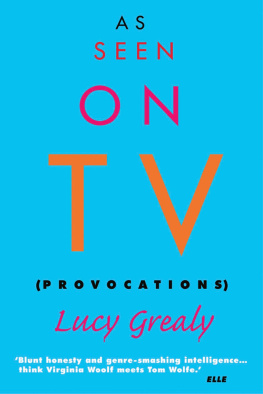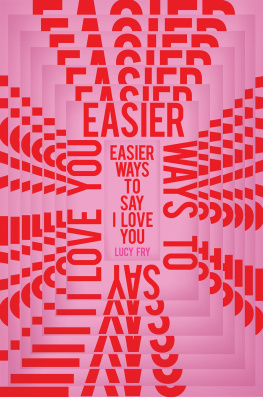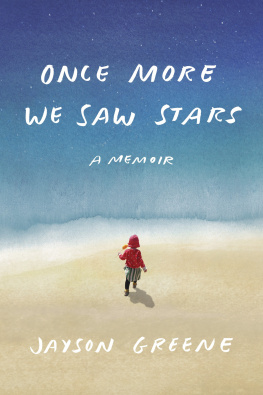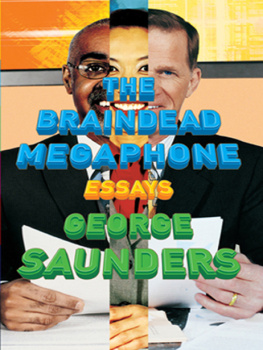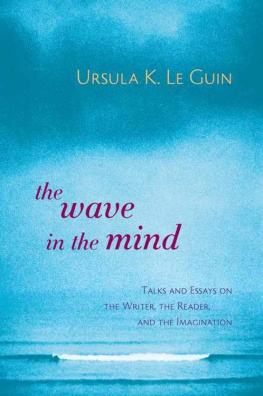AS SEEN ON TV
Autobiography of a Face
AS SEEN ON TV
PROVOCATIONS
LUCY GREALY

Copyright 2000 by Lucy Grealy
All rights reserved.
You may not copy, distribute, transmit, reproduce, or otherwise make available this publication (or any part of it) in any form, or by any means (including without limitation electronic, digital, optical, mechanical, photocopying, printing, recording, or otherwise), without the prior written permission of the publisher. Any person who does any unauthorized act in relation to this publication may be liable to criminal prosecution and civil claims for damages. For information address Bloomsbury USA, 1385 Broadway, New York, NY 10018.
Published by Bloomsbury USA, New York
Bloomsbury is a trademark of Bloomsbury Publishing Plc.
Library of Congress Cataloging-in-Publication Data has been applied for
eISBN: 978-1-59691-792-7
First published in the U.S. by Bloomsbury in 2000
To find out more about our authors and books visit www.bloomsbury.com. Here you will find extracts, author interviews, details of forthcoming events and the option to sign up for our newsletters.
Contents
Sometime around my junior year in college, a year when I was particularly earnest in my desire to know the meaning of life, and a year when I had just enough education behind me so as to inform and direct but not yet temper or tamp my zeal, it occurred to me that rather than spend my time trying to find the answers, it might be more worthwhile, or at least worth the change in scenery, to focus on the questions themselves. I'd been reading a book on theoretical mathematics (don't let that fool you; I can barely add and subtract and I can't multiply past 3 x 7; reading books on theoretical mathematics is my way of overcompensating), and for the first time I understood the abstract meaning of an equation; the information on both sides of the equal sign are equal. Of course the concrete aspect of this had been unsuccessfully forced upon me for years, so much so that the abstract meaning of it eluded me until this one particular day while reading in the college coffee house. Before, equations, particularly algebraic equations, had seemed a torture of the Inquisition genre, where the assumption was that simple terror and complex physical suffering would uncover the truth. All equations were, mostly, about how stupid I was, and the journey from one side of an equal sign to the other, from 3n to 25, from the question to the answer, was a deeply murky crossing completed successfully only by blind groping and luck.
But the sudden simple truth of the matter, that in essence and in fact the answer was already present, startled me. I had to look up from my book at the others sitting innocently around me and wonder if I should go tap someone on the shoulder and ask if it was true; you mean that the information on one side of an equal sign is the same as what is on the other side of an equal sign, but stated in a different form? I'd always been so linear about it before, thinking in terms of an exacting narrative, a process of answering Sphinx-like questions that made no sense. To see an equation as a whole unit, however, was a uniquely different experience; it was no longer a progressive mystery, but a sublime statement about how the question and the answer are distinguishable from each other only by form, that 15 is 3n; the same thing said in different ways. Before, my questions about life were like large bowls I filled as best I could with fragmented answers I picked up along the way. Now, however, life itself was the answer, and my job, as I saw it, was to start finding the questions worthy of it, equal to it. The obtuseness of my repeated verbal pleas with the universe to surrender its meaning became immediately apparent; of course there is no grammatically correct answer, or logical answer, or even a purely emotional one.
Martin Heidegger, in What Is Thinking?, suggests that intelligence, rather than being the assertion of what is known, is like an arrow piercing continuously into the unknown, and that it can only be of value when treated as something that provides us with ever greater stores of ignorance. Jacques Lacan also felt (along with many poets and mystics) that the 'real' is what cannot be said, and that our apparent selves are simply the detritus of what we do say. In Thomas Mann's TheMagic Mountain, Hans Castorp says he would rather risk sounding bumbling and foolish while trying to say a true thing than to sound smart while speaking in well-ordered platitudes.
These essays are the leftover evidence of my asking questions in various forms, and I also like to think of the essays as questions themselves, questions that focus on trying to perceive and experience the already present answer, life itself, as openly as possible. Necessarily, because it's impossible to occupy all possible forms at once (is that what enlightenment is?) the forms here vary widely. I wanted to know what I would find if I asked my questions in a very prescribed, precise way, as well as what is to be found from letting sentences open up and wander, as well as what is created when disparate topics are layered one upon the other.
Many of these essays were written at the request of anthology editors, all of whom allowed me great leeway; some are the twisted results of magazine editors' requests and were written for money, though most of my magazine pieces get killed because I get carried away and then can't bring myself to neuter the results; and many of these essays I wrote simply for the pleasure of the act. Though the accents in which these questions are asked span the frontal lobe, it's my hope that the voice they are asked in remains, if nothing else, and even when foolish and sputtering, earnest.
So, for reasons that will become obvious, I've changed a few identifying details in the following anecdote. It all started with my sitting at home feeling ignored one afternoon, when the phone rang. It was a producer at a certain daytime talk show. I don't watch daytime talk shows with any regularity - I don't actually watch TV with any regularity because I don't have cable which means, in Manhattan, that I don't have any reception. When I do get near a TV - in hotels, when I visit my mother, when I visit my friend Stephen's house - I watch it with great hunger and amusement. The so-called real shows are my favorites, like that one where people with gunshot wounds and pit bull bites and knives in their heads get rolled into various ER rooms around the country; or that I-just-happened- to-have-my-camcorder-on show in which planes crash into the audiences at military air shows and circus elephants run amok and toss innocent bystanders into the air, or actually, come to think of it, not-so-innocent bystanders because they were participating in the public humiliation of the elephant by watching it in a circus and thought that this culturally imperial activity of parading around interesting 'things' from the provinces for their own amusement was suitable entertainment for their kids, and come to think of it those people at the airshow, I mean, what kind of entertainment is that, showing your kids how glorified it is to fly a military plane whose original purpose it is to kill people anyway and then thinking it's a big tragedy when they crash into the audience and kill people, even though those weren't the actual dead people the designers of the plane had in mind; or that show which I don't really like but watch anyway because sometimes it's the only 'real' thing on, that show about the cops.
But daytime talk shows; no, I'm sorry, I just can't watch those no matter how desperate for TV I may get. The level of reality channeled there is just too depressing, the reality of what a big bunch of losers we all are. But my disdain of daytime talk shows doesn't mean I don't
Next page
